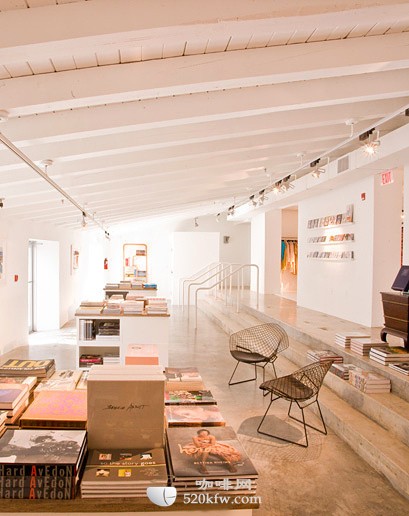Slow food is not only a culinary culture, but also a healthy lifestyle.

Slow food is not only a food culture, but also a healthy lifestyle and philosophy of life. It tells people how to find fun in fast-paced times. The best coffee shop models for future business prospects are Starbucks and COSTA models. Is it a simple handmade boutique cafe? Or is it fresh coffee? Or even cafes that cook more elaborate staples? What does COSTA's new concept store mean?
Benjamin Barber optimistically predicted that the future would be a busy landscape, with rapid economic and technological advances, economic forces that demanded integration, and fast-paced music-MTV, Macintosh computers, McDonald's-that mesmerized people everywhere, forcing the country into homogeneous global theme parks.
However, a recent U.S. News & World Report article titled "Goodbye Hamburger" said that for years, convenience and cheap slogans have been the winning formula for fast-food chains. But now, as the public grows weary of their old ways, the fast-food business is as bad as their food.
Behind the fast-food crisis lies a growing acceptance of slow food, as well as burger weariness, obesity fears, fears of mad cow disease, foot-and-mouth disease, bird flu and genetically modified foods.
The New Slow Food Era
In order to awaken people's numb taste by fast food, Italian gourmet Carlo Petrini initiated the establishment of an international slow food association as early as 1986. They exaggerated the letter "O" in slow food into a snail shape and hoped that people would insist on enjoying food at the speed of snails. They believed that the taste of food could only be fully reflected after careful chewing. It is an inalienable right of human beings to enjoy happiness by tasting delicious food.
In December 1989, more than 500 representatives of Slow Food members from 20 countries gathered in Paris to adopt the Slow Food Manifesto, which argued that the fast pace of urban life was distorting our lives and environment in the name of productivity. We need to start by eating slowly and resisting the fast pace of life.
Not only do slow-footers see McDonald's hamburgers as "junk food," but they also have little sympathy for the wildly expanding Starbucks coffee, which "is nothing more than something in Styrofoam."
Up to now, the International Slow Food Association has developed 70,000 members in more than 40 countries and regions such as Italy, France, Britain, Germany, Switzerland, the United States, Peru, Japan, Australia, Israel, Singapore and Hong Kong. They include catering operators, farmers, chefs, lawyers, doctors, engineers, teachers, staff and university students. Among them, the number of American members has increased rapidly by more than 300 people per month, and slow food members in New York and San Francisco have also formed "slow food clubs."
Since 1996, the International Slow Food Association has selected a city every other year to hold a "Slow Food Festival" to showcase local cuisine, such as the Slow Food Festival held in Turin, Italy in 2000, attracting 130,000 foodies from around the world, with more than 500 exhibitors. The Slow Food Festival has become a feast of steak, ham, bread, cheese, wine, olive oil and chocolate. Just as film has its oscars and music has its grammy, slow food international has its own slow food awards, honoring those who contribute to the preservation of traditional food culture.
Slow Food International also has its own gourmet publication, recommending local cuisine and specialty restaurants in five languages each season. All slow food restaurants admitted as members by the International Slow Food Association are labeled with the "snail" logo.
Slow eating is not simply chewing slowly. The core of slow eating culture is to protect the resources and preparation methods of endangered traditional foods, thus protecting the diversity of biological resources and the balance of ecosystems and ensuring the diversity of people's tables.
Colby Kummer, a senior food columnist for Atlantic Monthly, has long followed the activities of the International Slow Food Association. Recently, he published the book "The Joy of Slow Food," which describes in detail the production methods and production methods of slow food members around the world. Kummer said of the burgeoning slow food culture,"I naturally think it's a great movement. These values include: finding special people--people who have a strong interest in food preparation and don't want to live a nine-to-five white-collar life. They want to return to nature: to experience the seasons, to experience the vicissitudes of life; to have intimate contact with plants and animals."
Some medical professionals also pointed out that slow meals can not only regain the pleasure of tasting food, but also chew slowly to produce a lot of saliva, saliva contains 15 kinds of enzymes with special value, can reduce the toxicity of carcinogens in food, improve human immunity. At the same time, chewing slowly on the stomach, pancreas, gall bladder and other organs to stimulate more moderate, to reduce postprandial hyperglycemia is very beneficial. Medical experts believe that chewing more than 20 times per mouthful of food and eating more than 45 minutes per meal are basic guarantees of health.
Greenpeace in the catering industry
Of course, slow food is not simply chewing slowly. The core of slow food culture is to protect the resources and production methods of endangered traditional foods, thus protecting the diversity of biological resources and the balance of ecosystems and ensuring the diversity of people's tables.
Data show that 75 per cent of crop varieties worldwide have become extinct in the last 20th century. At present, about 80% of the world's food market is controlled by the world's top ten food companies. The fast-food giants only need meat, milk, eggs, potatoes and grains that meet their standards. Their large-scale intensive production makes those local agricultural products with small yields and low returns face the danger of being eliminated. If humans were content with industrialized, standardized fast food, in a few years there would be only one or two items left on our menu: hamburgers and fries.
The elimination of a food species, the loss of a processing method, means the disappearance of a flavor. The International Slow Food Association regards local traditional handmade food as the most important cultural heritage in the world. Since 1997, they have launched the "Delicious Ark Project". Members of the Association go deep into farmers in their respective regions to explore food resources that are about to be forgotten in the standardized fast food trend, such as Violino's goat, Corbara's tomato, Alpenga's purple asparagus, Trevi's black celery, Vesuvius's apricot, garlic ham in southern Italy. The honey of special bees in the Turkish mountains and the cheese of the Alps are then catalogued and recorded, recommended to chefs for purchase and recommended to the public for consumption.
The Italian Renzo Sobrino's little mill is a "relic" from the 19th century. He likes to process cereals and flour from the 19th century. It is said that bread made from flour in this small mill is still soft and delicious after five days, just like it was freshly baked. Renzo had tried to persuade local farmers to resume planting a lost variety of large-grain corn, but the hybrid corn imported from the United States produced five or six times as much. Local farmers were reluctant to plant it, and bakeries lost interest when they heard that his flour sold for two or three times as much as ordinary flour. With the help of Slow Food International, retail magnate Williams-Sonoma signed a sales contract with Renzo's Little Mill.
Delicious Ark aims to protect endangered foods and can directly protect endangered species, so the New York Times called Slow Food International "the Greenpeace organization of the food industry."
A hundred years ago, there were 100 to 120 species of plants and animals available to eat; today, there are only 10 to 12 on our menu.
Forgetting what food tastes like is a human tragedy.
The Slow Food Manifesto cautions that it is necessary to train children's taste buds to improve their discrimination skills and identify high-quality food with us from elementary school onwards.
Why is Piedmont steak delicious? Because Piedmont cattle are raised grazing on mountain pastures, not on biological feed and growth-promoting hormones.
Why is Bordeaux's finest wine delicious? Because the wines of these chateaux are stamped out by farm workers with rough feet, the pressure of the foot is just enough to break the skin of the grape, and all the taste, color and aroma of the grape are stamped out without crushing the grape core. Crushing grapes by machine will crack the grape pit and the wine will have an excessively bitter taste.
International Slow Food Association Japan President Kumoto Guishi is an urban planning designer, he actively promotes "taste education" in his spare time, such as letting children package oranges regardless of sweetness and size, and experience activities such as net fishing with parents. He stressed that it is generally believed that taste has been formed by the age of 10, but if you have been eating a single diet, taste can not be very developed. Tell children how fruit grows on trees, how fish are caught, and there is no shortage.
Now many food products, semi-finished spices are actually processed with cheap potato skin. The industrialization of food, so that a generation of cheap prices to eat low-quality food, even forget the original taste of food, this is a human tragedy.
Out of the "McDonald's" iron cage
Fast food is a product of fast-paced society, a vicious cycle of lifestyle at the speed of "365-7-24." The Slow Food Manifesto points out that we are now slaves to speed and infected with the same insidious virus-fast lifestyle.
Professor George Ritzer, a famous American sociologist, even summarized contemporary society as "McDonald's". He wrote in "McDonald's of Society: A study of the characteristics of contemporary social life in change mentions that McDonald is a model of efficiency, calculability, predictability and controllability. However, in the process of McDonald's principle ruling more and more aspects of society, the simplification and mechanization of various institutions and processes will make people lose their interest in work and life. People's control over the process may in turn control human beings themselves. The modernization process represented by McDonald may conform to "instrumental rationality". It does not conform to "survival rationality". George Ritzer warned that "people do live largely in the iron cage of reason, with few exits."
So how do you get out of the "McDonald's" cage? The answer: slow food culture versus fast food culture. Carlo Petrini said,"Our sport is a mass sport, not just about finding delicious food for our taste buds, but about preserving our humanity."
In Bra, Italy, where the International Slow Food Association is headquartered, slowness has become the cultural flavor of the town: people not only pay attention to eating "slow food", but also walk slowly-all vehicles are banned from the city square because "cars are a prelude to mental stress"; food stores and grocery stores are closed on Saturdays and Sundays; It is said that the hour hand of a clock tower in the town is also half an hour slower every day, but people here have become accustomed to the slow pace of life and enjoy the comfort and leisure brought by slowness.
Although the "Slow Food Capital" has slowed down the pace of life, it has not slowed down the speed of economic growth. Business sales in Bra are rising at an annual rate of 15%, while unemployment is only 5%, half the Italian average. Slow pace of life not only improves people's quality of life, but also can improve economic efficiency.
Therefore, slow food culture is not only a food culture, but also not only a healthy lifestyle, but also a philosophy of life, which tells people how to find fun in fast-paced times.
Important Notice :
前街咖啡 FrontStreet Coffee has moved to new addredd:
FrontStreet Coffee Address: 315,Donghua East Road,GuangZhou
Tel:020 38364473
- Prev

Coffee and Cafe Culture
History itself is a cultural phenomenon, and the deposition of human culture is the product of human long-term history and social practice, which is both spiritual and material. Therefore, when we mention the term culture, it represents that rhyme is not only a common concept in the academic and ideological field, but also a daily term in social life. Everything created by human beings can be regarded as the content of culture.
- Next

Like the faint bitterness of coffee
Like coffee, not because of its refreshing, but because of its bitterness and its aroma, like the mood when drinking coffee, that kind of elegance, that kind of leisure, that kind of quiet, that kind of yearning in love with this kind of coffee mood, irresistible. I don't know when coffee became a part of my life. In fact, coffee is an art of life, because coffee itself
Related
- How did the Salvadoran coffee industry develop in Central America?
- What exactly does the golden cup extraction of coffee mean?
- The Origin of Coffee flower
- [2023 Starbucks World Earth Day] there are more meaningful things besides free Starbucks coffee!
- What kind of coffee is there in Spain? 9 Flavors of Spanish Coffee
- Aromatic African coffee| Kenya's coffee culture and historical production area
- Liberica Coffee Bean knowledge: the characteristics of Liberian Coffee beans of the three original species of Coffee beans
- The origin and formula of Spanish latte introduces the taste characteristics of Bombon coffee in Valencia, Spain.
- How to adjust the solution of over-extracted coffee
- What is the tasting period of coffee beans? What is the period of coffee and beans? How should coffee wake up and raise beans?

